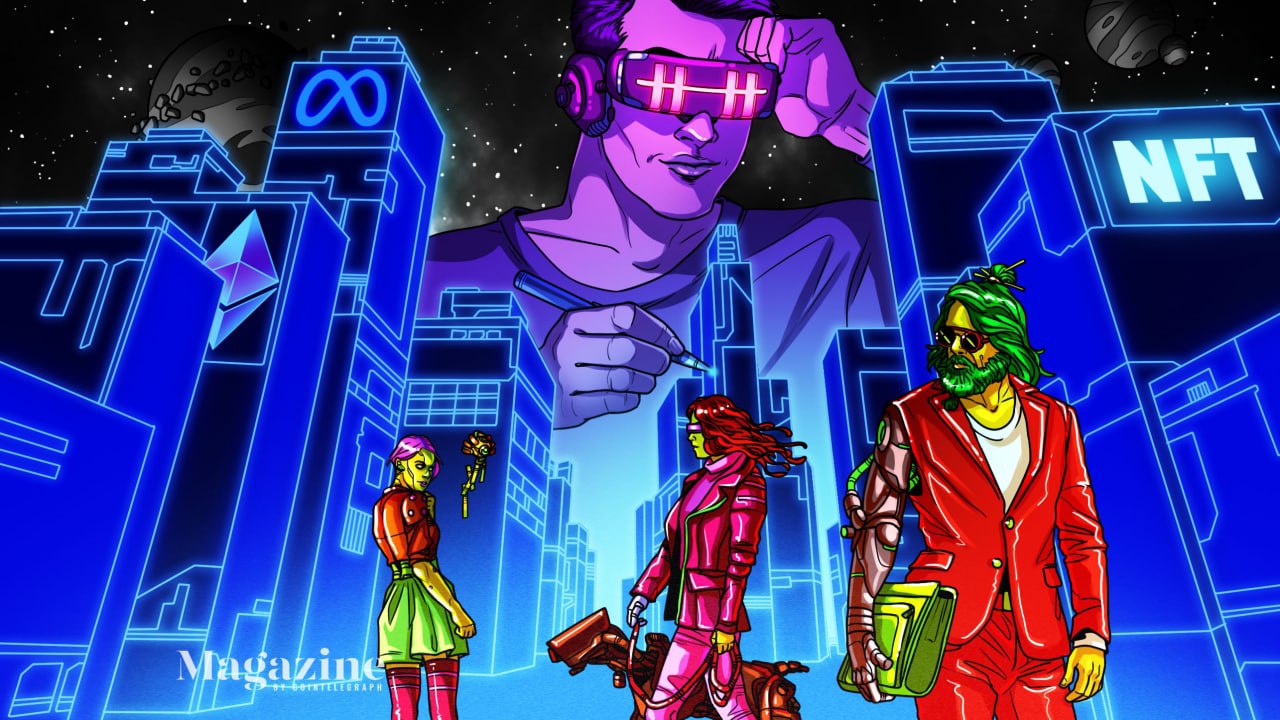Cointelegraph Magazine talks to some of the leading Metaverse founders to discover their secret sauce for Web3.Featuring co-founder of The Sandbox Seb
Cointelegraph Magazine talks to some of the leading Metaverse founders to discover their secret sauce for Web3.
Featuring co-founder of The Sandbox Sebastien Borget, co-founder of Upland Idan Zuckerman, head of metaverse growth of Unique Network Irina Karagyuar, chief marketing officer of Univers Peter Nguyen, co-founder of Alien Worlds Sarojini McKenna, co-founder of Immersys Daniel Knott, head of metaverse and NFT of Zilliqa Sandra H and co-founder and chief marketing officer of Bloktopia Paddy Carroll.
Sand dues
The Sandbox has established itself as a major player in the Metaverse and appears to some to have catapulted onto the main stage overnight. But, co-founder Sebastien Borget points out that The Sandbox began life as a mobile gaming studio, pursuing that for eight years before spending four more in blockchain.
So, it’s not an overnight success, just in the right place at the right time — or, perhaps, it helped create the right place and time.
“We’ve been unlucky at times and also lucky. I wouldn’t pretend we invented anything. The ingredients were all there and we were able to piece them together with meaning, value and utility. Now, we are focused on how we develop this form of entertainment,” he says.
“We started with gaming but we are open to any kind of entertainment and want to bring in more culture, more lifestyle, more immersion and more socialization in ways not seen before.”
There are many metaverses in Web3 and Magazine caught up with some of the more prominent founders to get unique insights into how these new digital lands emerged. After all, it’s not every day that someone gets to create a new land — or more importantly — people are enthused enough to come join them.
Progressive decentralization
Like many of the Web3 projects being built, the Sandbox is currently being run as a centralized entity, but its economy is being decentralized through NFTs. Borget calls it progressive decentralization.
It is big business, as Sandbox has demonstrated through the sale of its virtual real estate and the attraction of some of the biggest brands including Paris Hilton, Snoop Dog and Nike.
The current value of the land base of Sandbox based on the secondary market price is close to $1.5 billion, while the SAND token’s market cap is $3.3 billion and ranked #37 overall by total market cap, per CoinMarketCap.
Last month, JP Morgan issued a report on metaverses which concluded by saying that the Metaverse will most likely infiltrate every sector in some way in the coming years, with the market opportunity estimated at $1 trillion in yearly revenues. It’s a bit loose on specifics and the report leaned much more heavily into the hype than reality, but suggests that the only way is up. Since publishing that report, JPMorgan has opened a branch in Decentraland and only this week, HSBC followed suit.
“The timing is right,” says Borget.

The only way is Upland
Upland is an NFT metaverse that is mapped to the real world where users can buy, sell and trade virtual properties akin to real-life counterparts.
“Upland is all about the blurring between the real and digital worlds. While there is huge room for fantasy worlds in the Metaverse, Upland is focused on an experience that is mapped to the real world and real-world location delivered through a mobile-first mindset,” says Idan Zuckerman, co-founder of Upland.

With its direct mapping, Upland mirrors much of reality, but when asked which part of IRL would he leave behind, Zuckerman says instantly:
“Wars.”
He had a very clear image of what he wanted to achieve from the beginning and says it’s important to understand the future ramifications of newly developed technology. He points out the domain extension for Upland is dot.me with the “me” standing for metaverse.
“Our inspiration came from the earliest concept of NFTs. Back in 2018, we studied the ERC-721 contract, or the NFT standard on Ethereum, and early products that were built to utilize it for early iterations of blockchain games,” says Zuckerman.
“We realized what this could mean for the future of digital economies and digital ownership. Web3, even before the term was coined as the future, has been the DNA since the beginning of the Upland operation.”
Web3?
Irina Karagyuar, head of metaverse at Unique Network, the leading Polkadot NFT platform, explains that Web3 is a “decentralized, consensual and token economy based model” compared with the existing Web2 “centralized platform-oriented model” of Facebook, Spotify, YouTube, Google, etc.
“If we remain with the same Web2 model, any new development, including the Metaverse, will exacerbate the problems we’re facing already related to data privacy, human rights, the uneven spread of wealth for creators and other problems.”
Karagyuar adds that “Web3 is adding real value to the Metaverse…
cointelegraph.com
